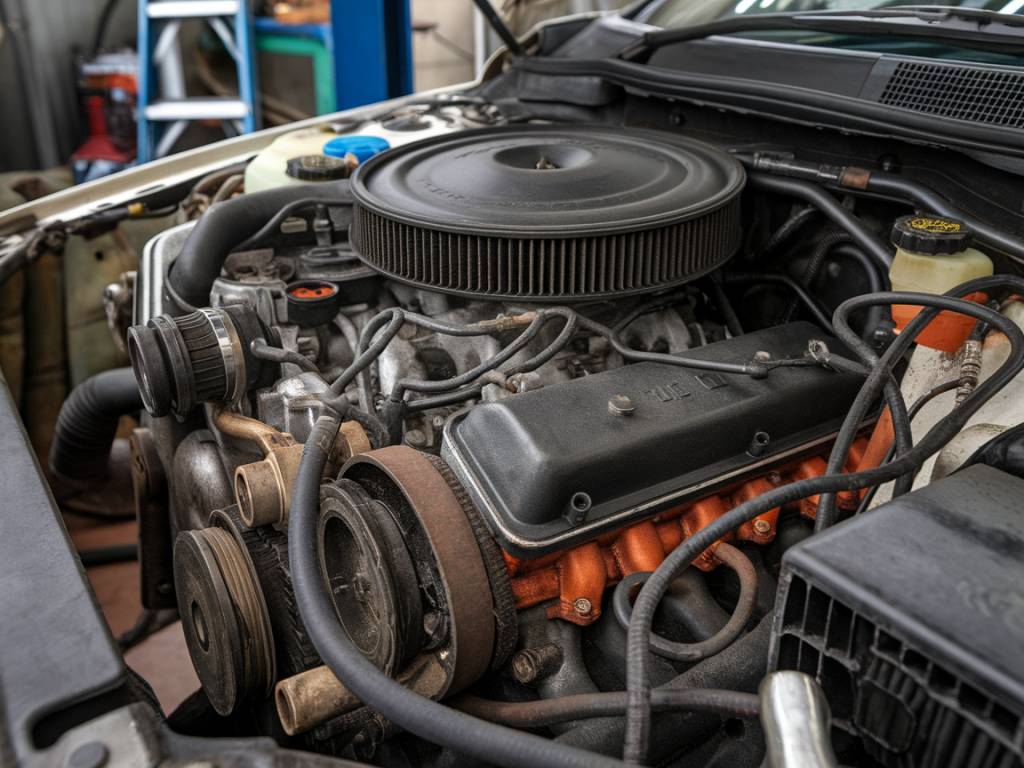top maintenance mistakes to avoid for prolonging your car’s engine life

top maintenance mistakes to avoid for prolonging your car’s engine life
Proper car maintenance is crucial for prolonging the life of your vehicle’s engine. Neglecting specific tasks can lead to costly repairs and lessen the overall lifespan of your car. Below, we explore the top maintenance mistakes to avoid to ensure your engine remains in peak condition for years to come.
Ignoring Regular Oil Changes
Oil is the lifeblood of your car’s engine. Over time, it breaks down and collects debris, which can cause significant damage to the engine. Skipping regular oil changes can lead to severe problems, such as reduced efficiency, increased wear, and ultimately engine failure. Most manufacturers recommend oil changes every 3,000 to 7,500 miles, depending on driving conditions and the type of oil used. Always refer to your vehicle’s owner manual for specific guidelines.
Neglecting the Air Filter
The air filter maintains a balance between too much and too little air reaching the engine. A clogged air filter can decrease fuel efficiency and increase emissions, leading to a struggling engine. Ensure you check the air filter at least every 15,000 to 30,000 miles. Replace it if it appears dirty or clogged.
Overlooking Spark Plugs
Spark plugs play an essential role in igniting the air-fuel mixture in the combustion chamber. Worn-out spark plugs can lead to engine misfires, reduced fuel efficiency, and difficulty starting the car. They should be checked every 30,000 miles and replaced if necessary.
Failing to Monitor Fluid Levels
Your car’s engine relies on various fluids, including coolant, transmission fluid, brake fluid, and power steering fluid, to function correctly. Failing to monitor and top off these fluids can lead to overheating, poor braking performance, and steering problems. Make it a habit to check these fluids at least once a month and top them off as needed.
Using Low-Quality Parts and Fluids
Opting for cheaper, low-quality parts and fluids may save you money upfront, but it can cost you more in the long run. Always choose high-quality, manufacturer-recommended parts and fluids to ensure optimal engine performance and longevity.
Forgetting the Timing Belt
The timing belt synchronizes the engine’s camshaft and crankshaft, maintaining the correct timing for efficient engine operation. A broken timing belt can result in severe engine damage. Most manufacturers recommend replacing the timing belt every 60,000 to 100,000 miles. Check your owner’s manual for specific intervals and replace it when necessary.
Skipping Routine Inspections
Routine inspections by a certified mechanic can help identify potential issues before they become significant problems. During these inspections, mechanics can check for signs of wear, leaks, and other issues that could affect your engine’s performance. Aim for an inspection at least once a year or more frequently if you drive extensively.
Driving on an Empty Tank
While it might be tempting to drive until your tank is nearly empty, this habit can damage your engine. Sediments at the bottom of the fuel tank can clog the fuel pump or injectors, leading to poor engine performance or failure. Refuel when the tank is about a quarter full to avoid these issues.
Neglecting the Battery
A failing battery can cause starting issues and strain the engine. Regularly check the battery’s charge and clean the terminals to ensure proper electrical flow. Replace the battery every three to five years, or sooner if you notice signs of wear.
Improper Tire Maintenance
While tires might not seem directly related to engine maintenance, improper tire care can affect your engine’s performance. Under-inflated or worn-out tires can cause the engine to work harder, increasing wear and fuel consumption. Check tire pressure monthly and rotate your tires every 6,000 to 8,000 miles.
Ignoring Check Engine Light
Many drivers ignore the check engine light, hoping it will turn off on its own. However, this warning light indicates an underlying issue, which can worsen if not addressed. Use an OBD-II scanner to diagnose the problem or have a professional inspect your vehicle.
Overlooking the Exhaust System
A damaged or clogged exhaust system can reduce engine performance and fuel efficiency. Regularly inspect the exhaust pipes, muffler, and catalytic converter for signs of damage or leaks. Fix any issues promptly to maintain optimal engine function and reduce harmful emissions.
Driving Aggressively
Frequent rapid acceleration, hard braking, and high-speed driving can cause significant wear on your engine. Such habits increase the stress on various engine components, leading to faster degradation. Adopt a smoother driving style to extend the life of your engine.
By avoiding these common maintenance mistakes, you can greatly prolong the life of your car’s engine and ensure a smoother, more efficient driving experience. Regular attention to these details will keep your vehicle running reliably and save you from costly repairs down the line.





